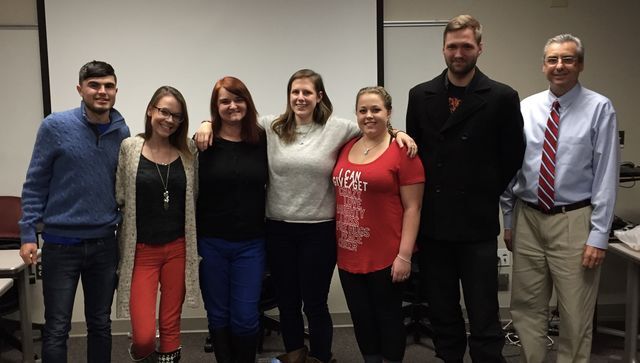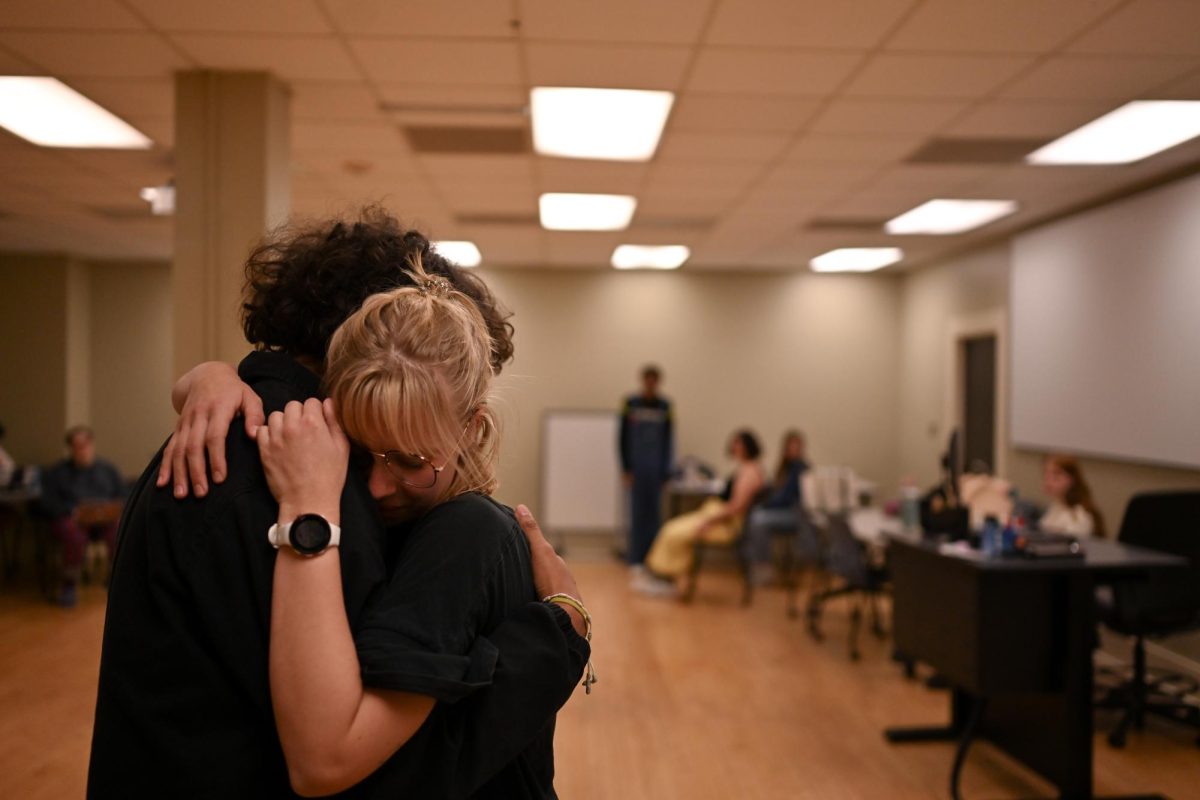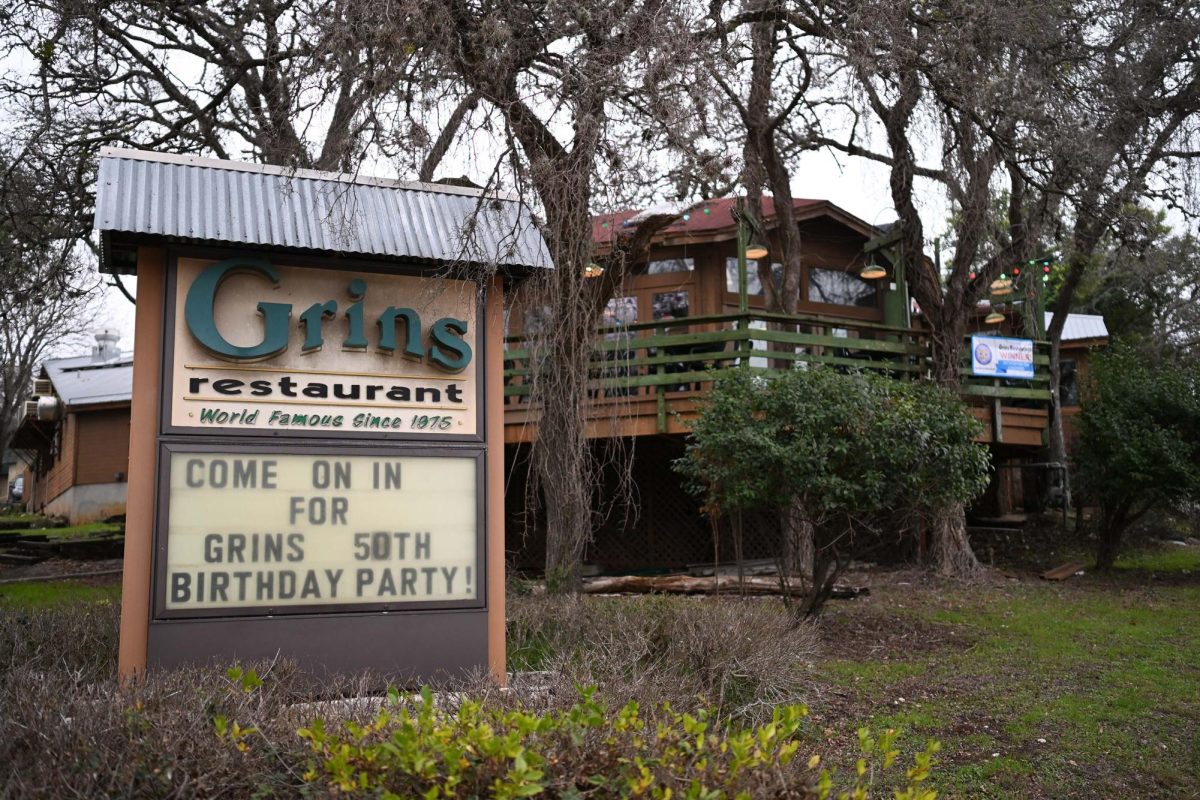Drinking can quickly get out of hand due to all sorts of factors, however, no student has to battle alcoholism alone thanks to campus resources.
Students battling alcoholism or binge drinking, or students in the recovery process of alcohol abuse are offered a variety of resources on campus. The Student Health Center, Alcohol and Drug Compliance Services and the Counseling Center assist students in their journey to living a healthy life.
According to the Health Center’s Core Institutes’ 2014 Data, 44.2 percent of students do not know there is an alcohol and drug prevention program at Texas State.
Julie Eckert, health promotion services assistant director, works in the Student Health Center. The Student Health Center provides psychological assistance for students struggling with alcohol abuse, as well as alcohol prevention and education programming.
“I think students have a basic knowledge (about alcohol abuse) when they get (to college), but we can do more,” Eckert said. “I feel like they need multiple doses of talking about alcohol to remember it.”
The Health Center’s Core Institutes’ 2014 Data showed 42.8 percent of students reported binge drinking in the previous two weeks. A binge is defined as consuming 5 or more drinks in one sitting. Eckert said students are more prone to the dangers of binge drinking due to parties.
The Student Health Center teamed up with Cenikor, a national non-profit foundation committed to helping those with substance abuse. In fall 2017 the two founded the Student Recovery Alliance. The group is open to all Texas State students and meets at 5 p.m. on Thursdays in the Student Health Center conference room 202.
The group’s mission is to give students a community that understands the struggles of alcoholism. Meetings are student-run and discussion based so members can explore sobriety together and encourage one another.
When the university is closed, the Student Recovery Alliance meets off campus so there is never a lack of support for students. The group plans events outside of the weekly meetings, namely community service. Together they participated in Bobcat Build and have volunteered at the Hays County Food Bank.
Elyse Greenamyre, psychology senior, works for Cenikor and facilitates the Student Recovery Alliance meetings. She is passionate about working with this group to provide a voice of hope.
“When somebody is using and struggling with alcohol there is a tendency to isolate themselves and that doesn’t make anything better,” Greenamyre said. “Sometimes coming to a meeting means (a student) doesn’t relapse because they have support and can talk about what they are going through.”
The Alcohol and Drug Compliance Services is located in LBJ 5-9. Its role is different from the Student Health Center because it assists students in their on or off campus alcohol or drug violations. The office hosts Alcoholics Anonymous meetings as well as alcohol education programs for minors, including non-Texas State students, who receive a drinking violation in the state of Texas.
AA meetings are open for anyone to attend and are held on Tuesdays at 11 a.m. in Lampasas 302. The AA meetings follow the national 12 step programfor recovery. The 12 step program begins with admitting powerlessness to alcohol and ends with having a spiritual awakening.
The alcohol education program for minors is a state-mandated course offered at Texas State for any minor with a drinking violation. The course is divided into two three-hour courses and is held in LBJ 5-1.16 with limited spacing. Students are required to sign up ahead of time and must complete a pre-test and post-test to earn a certificate of completion.
in the previous 30 days 60.3 percent of students under 21 consumed alcohol, according to The Health Center’s Core Institutes’ 2014 Data.
Stacy Stokes Batts, Alcohol and Drug Compliance Services coordinator, is an instructor for the course offered on campus.
“Students can recognize (they need support) if their alcohol use is causing problems in their major areas of life: legal, financial, physical, mental, academics and relationships,” Batts said.
The Counseling Center is another outlet for students to begin recognizing a potential alcohol dependency problem. Students can talk with psychologists and social workers on the issues they are facing to then be directed to the appropriate resources.
Each campus resource ensures the confidentiality of all students they serve. To discuss the likelihood of an alcohol problem, the Counseling Center assists students to determine the next step toward a healthier lifestyle. The Student Health Center’s psychologist assists students facing mental instability based on alcohol dependency. For those on the journey to sobriety, the Student Recovery Alliance and AA meetings provide communities of support and encouragement.
Categories:
Resources offer support for alcoholism
April 18, 2018
The Student Recovery Alliance meets weekly on Thursdays to support each other in living a sober, healthy life.
Photo of Elyse Greenmyre.
0
Donate to The University Star
Your donation will support the student journalists of Texas State University. Your contribution will allow us to purchase equipment and cover our annual website hosting costs.
More to Discover








